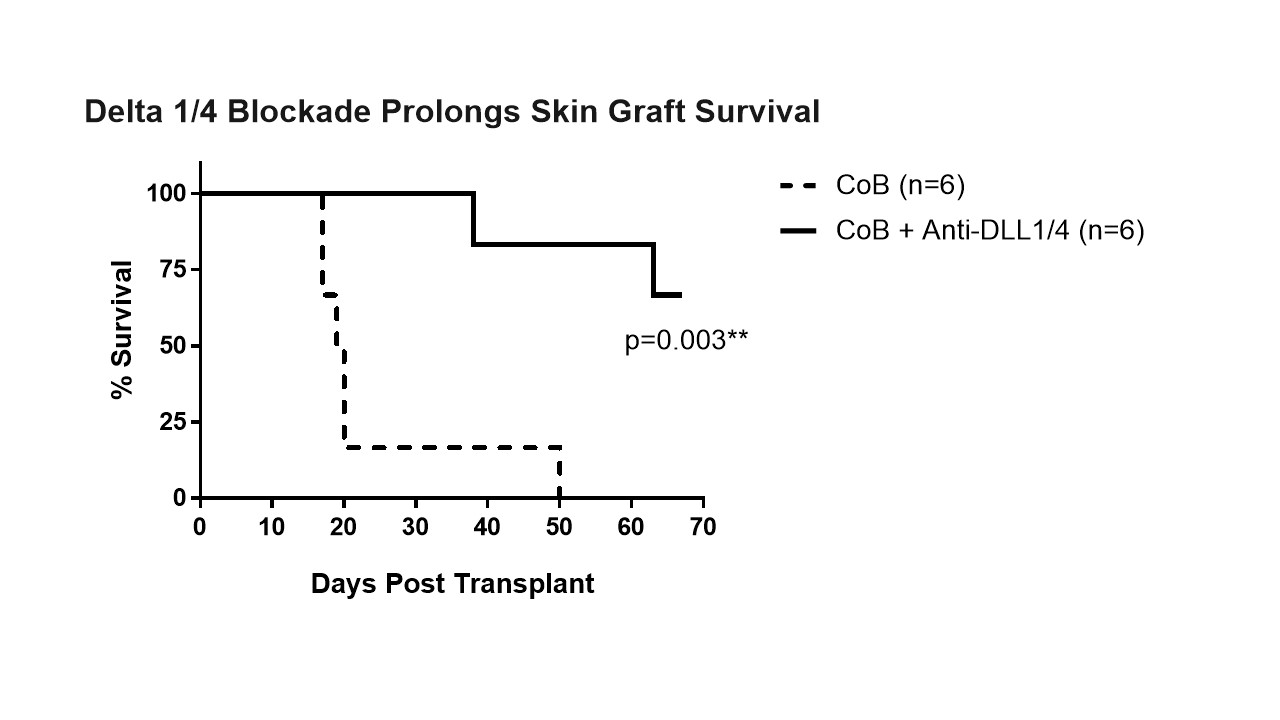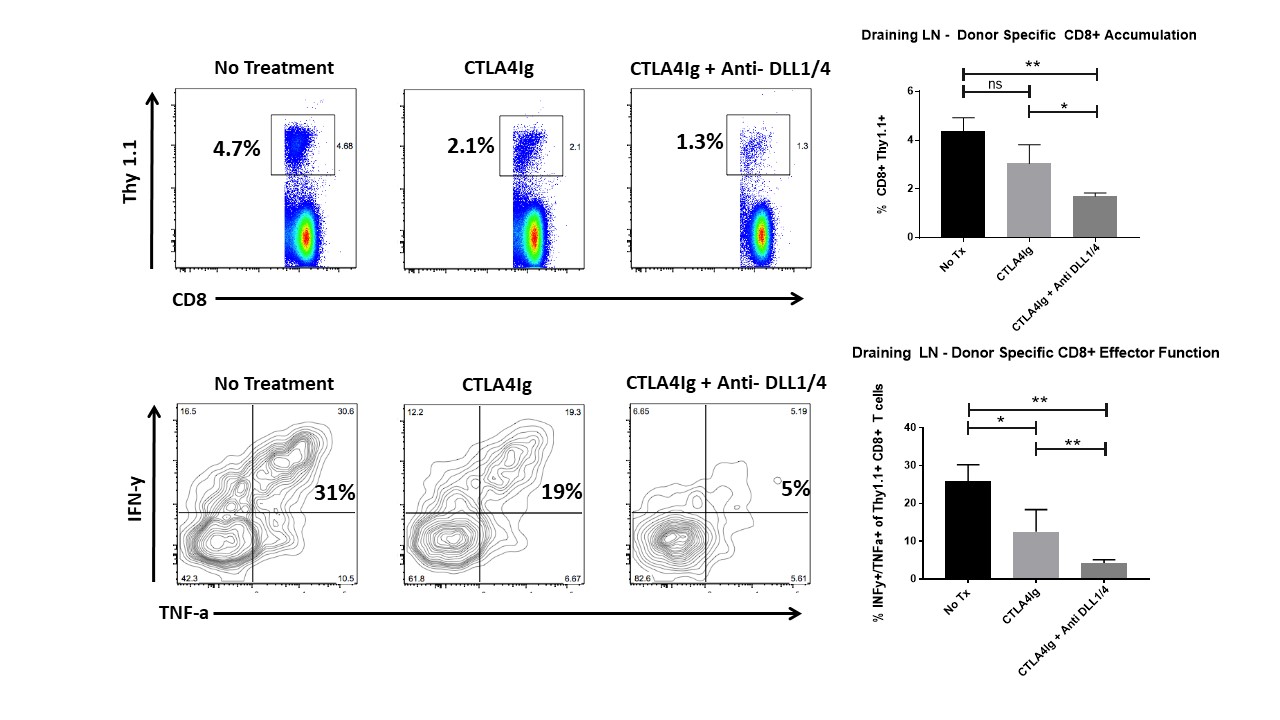Interruption of Notch Signaling via Blockade of Delta-Like Ligands 1 and 4 Prevents Co-Stimulation Blockade Resistant Allograft Rejection
Surgery and Transplantation, Emory University, Atlanta, GA
Meeting: 2019 American Transplant Congress
Abstract number: 263
Keywords: Co-stimulation, Rejection, T cell activation, Tolerance
Session Information
Session Name: Concurrent Session: Immunosuppression Preclinical Studies
Session Type: Concurrent Session
Date: Monday, June 3, 2019
Session Time: 2:30pm-4:00pm
 Presentation Time: 3:06pm-3:18pm
Presentation Time: 3:06pm-3:18pm
Location: Room 309
*Purpose: Co-stimulation blockade (CoB) has emerged as a promising immunosuppression strategy with the advent of belatacept, a novel CTLA4-Ig fusion protein that blocks CD28-mediated T cell co-stimulation. Belatacept confers long-term advantages in graft survival and function in renal transplant recipients compared to traditional calcineurin inhibitor-based immunosuppression but is associated with increased rates of early acute rejection.
*Methods: Using a mouse model of MHC-mismatched skin transplantation, we investigated the role of Notch pathway inhibition via blockade of Delta-like ligands 1 and 4 (Delta 1/4) on CoB-resistant allograft rejection.
*Results: In our model of Balb/C to C57BL/6 skin transplantation, combined CoB (CTLA-4Ig + anti-CD154) and Delta 1/4 blockade significantly prolonged skin graft survival compared to CoB alone (MST 19.5 days vs. >67 days, p = 0.003**). Delta 1/4 blockade did not inhibit T cell proliferation in vivo, but instead induced T cell apoptosis. Anti-donor IgG antibody was also significantly reduced in the combined treatment group. We next examined donor-specific T cell responses using mOVA skin grafts in recipients which received an adoptive transfer of Thy1.1+ ovalbumin-specific OT-I T cells. Combined CTLA-4Ig and Delta1/4 blockade suppressed donor-specific CD8+ T cell accumulation in draining lymph nodes compared to CTLA-4-Ig alone. Further, the combined blockade regimen suppressed both IFN-gamma and TNF production by donor-specific CD8+ T cells.
*Conclusions: These data demonstrate that Delta 1/4 blockade suppresses donor-specific T cell responses in the setting of CoB and prevents CoB-resistant rejection. We have identified the Notch signaling pathway as a promising target for future large animal and clinical studies of CoB-resistant rejection.
To cite this abstract in AMA style:
Matar A, Dong Y, Lovasik B, Mathews D, Ghosh A, Breeden C, Stephenson A, Kitchens W, Adams A. Interruption of Notch Signaling via Blockade of Delta-Like Ligands 1 and 4 Prevents Co-Stimulation Blockade Resistant Allograft Rejection [abstract]. Am J Transplant. 2019; 19 (suppl 3). https://atcmeetingabstracts.com/abstract/interruption-of-notch-signaling-via-blockade-of-delta-like-ligands-1-and-4-prevents-co-stimulation-blockade-resistant-allograft-rejection/. Accessed February 10, 2026.« Back to 2019 American Transplant Congress


